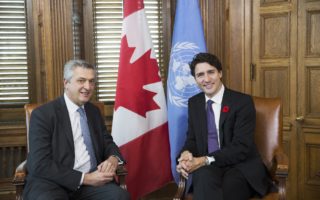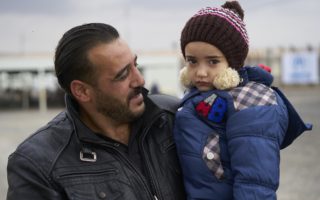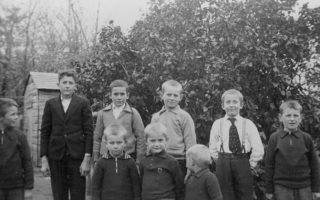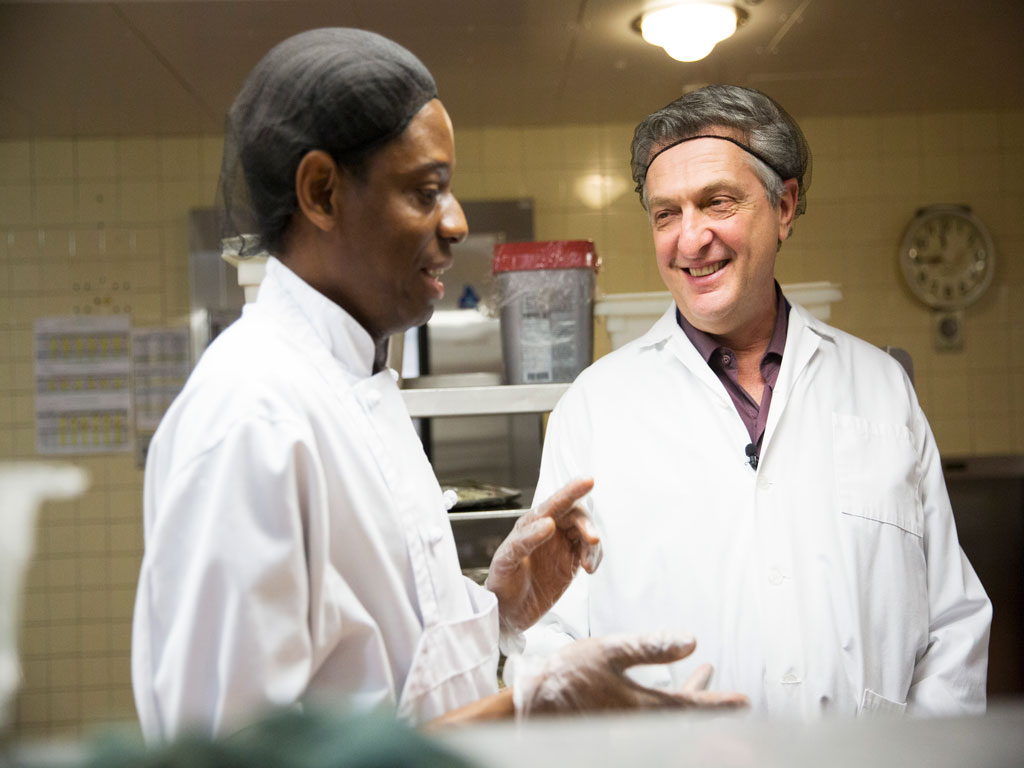
UN High Commissioner for Refugees Fillipo Grandi (right) met with Congolese refugee Jean-Claude Puati at a Montreal hospital where he works as a cook. © UNHCR/Michelle Siu
Among the many refugees Filippo Grandi encountered during his mission to Canada, a hospital worker in Montreal had a particularly profound impact on the head of the UN Refugee Agency.
During the first leg of a four-day visit to Canada, Grandi met with Jean-Claude Puati, 40, a gay man who had been forced to flee persecution in his native Democratic Republic of Congo—and subsequently South Africa—after facing discrimination over his sexual orientation.
With the help of the Government of Canada and UNHCR, Puati came to Montreal two years ago. Upon arrival, with assistance from resettlement agency Centre de Service d’Aide aux Immigrants (CSAI) Puati, 40, was provided with professional training and was able to land work as a cook at Notre-Dame Hospital.
“He told me, he has a job that gives him dignity and he can get back his sense of identity, his sense of being a person respected by others,” Grandi recalled.
“It’s a beautiful story of how refugees who are given an opportunity, taken out of an impossible situation to a country like Canada, and can then rebuild their lives and have a future and contribute to the societies that host and receive them.”
Puati’s resettlement to Canada is encouraging—yet his story remains a rarity. Grandi said he is among a fortunate few as not many refugees get resettled—less than one per cent worldwide.
Canada has long been heralded for its open embrace of refugees, having resettled some 621,000 since 1979.
“This is what I love about this country: that civil society, ordinary people, NGOs, charity organizations are very committed to helping people that come from abroad in search of safety, protection and better lives,” said Grandi.
“Unlike in some other parts of the world where this movement has taken negative connotations, here in Canada, there is a very positive attitude towards receiving refugees and giving them space for integration, and getting back, as we said for Jean-Claude, their dignity and their sense of opportunity.”
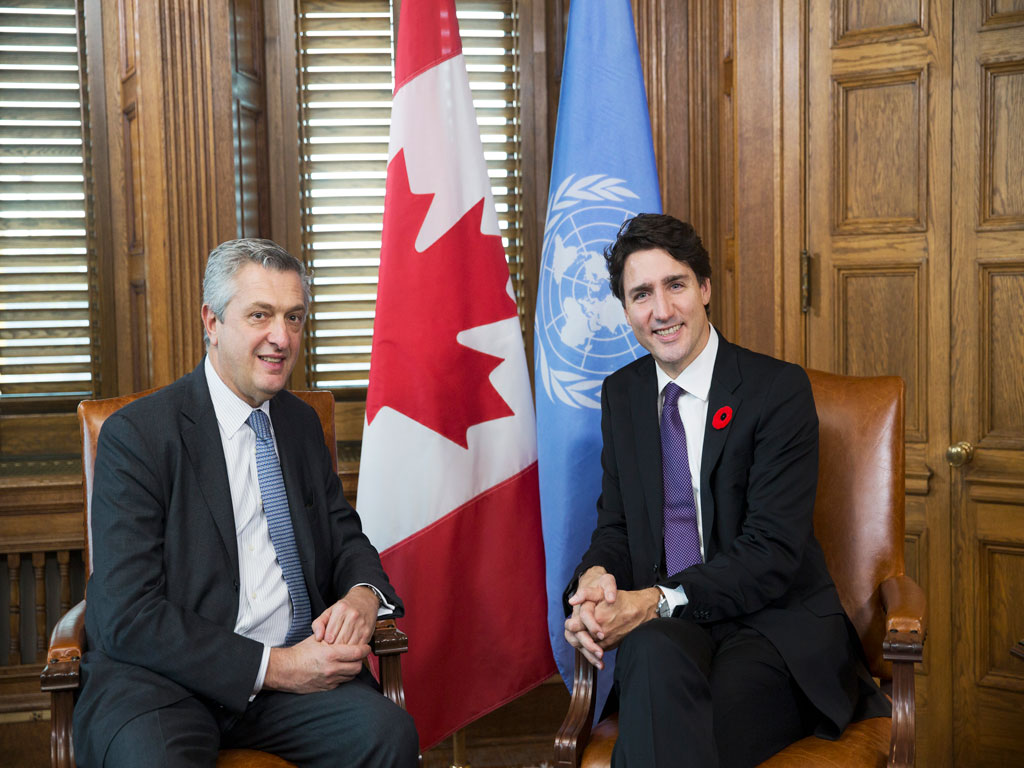
During his mission to Canada in the fall of 2017, UN High Commissioner for Refugees Filippo Grandi met with Prime Minister Justin Trudeau where he hailed Canada as a “champion” for refugees. © UNHCR/Michelle Siu
Grandi met with Prime Minister Justin Trudeau and Minister of Immigration, Refugees and Citizenship Ahmed Hussen, during his visit, where he praised Canada as a “champion” for refugees while also encouraging the country to do more to help.
Canada recently pledged to resettle 27,000 refugees in 2018, of which approximately 9,000 are UNHCR-referred resettlements. This remains a fraction of the 1.2 million vulnerable refugees UNHCR has identified worldwide who need to be resettled to a third country, like Canada.
“Canada has an important resettlement program, which is partly run by the government with UNHCR’s help, but partially also sponsored and actually run by private organizations and private citizens. And I think this mix is very important,” said Grandi. “It allows people also to become familiar with this far-away situation, with people that come here and start a new life. And also, it encourages the government to do more to help organizations like mine help refugees in those countries and help resettle those people here.
“It’s a very virtuous circle that happens in this country and I would like to really commend and thank the Canadian people for their extraordinary generosity, openness and willingness to show solidarity towards those that are among the most deprived people in the world.”



